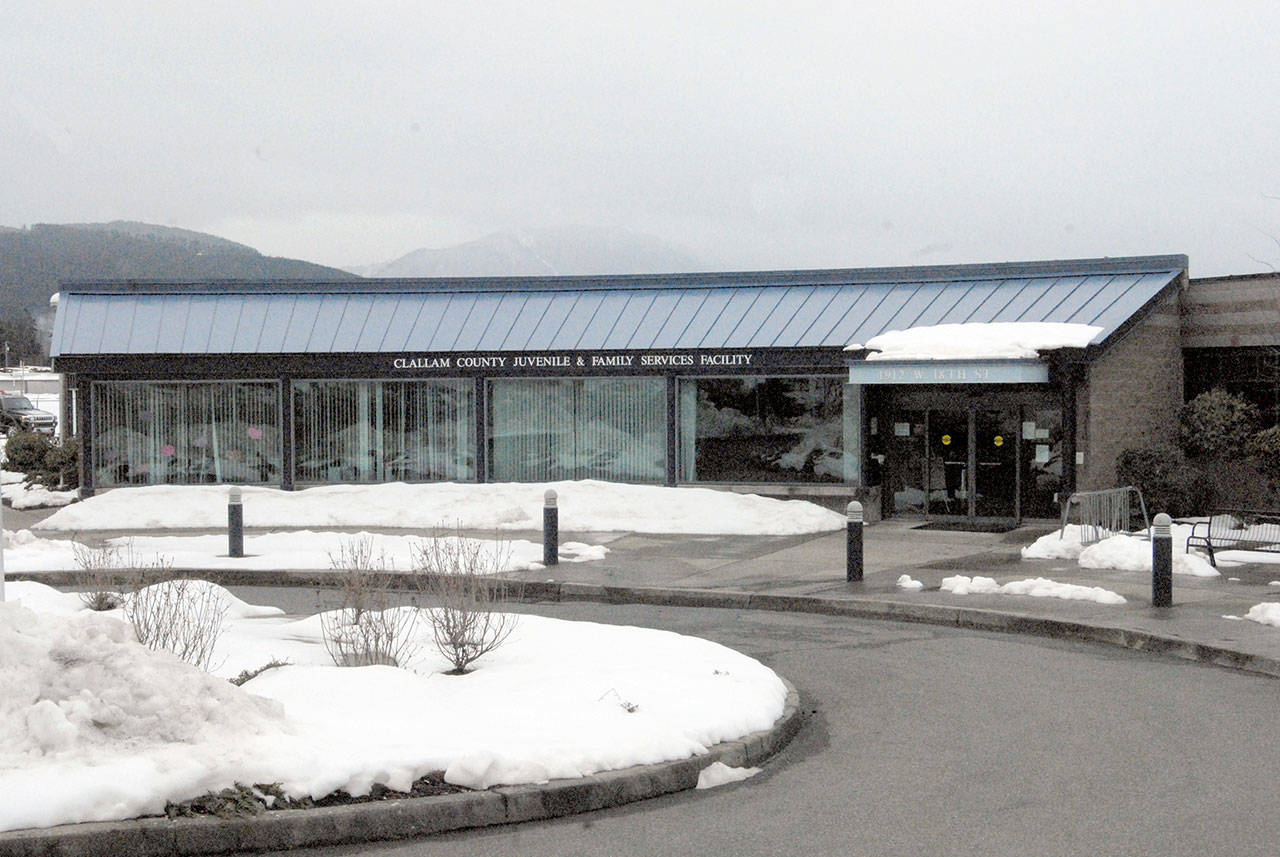PORT ANGELES — A $1.1 million state grant that would fund a secure withdrawal management facility for Clallam County Juvenile & Family Services is at risk due to higher-than-anticipated costs.
The state Department of Commerce grant was intended to allow the county to expand the True Star Behavioral Health youth treatment agency and position the county to open the state’s first secure withdrawal management detox center for youth chemical dependency holds.
The county is concerned about unanticipated construction costs associated with a seclusion room and is asking the state whether the project can move forward without constructing a seclusion room, adjacent bathroom, ambulance driveway and canopy. Those cuts would save more than $300,000, according to a letter the Board of County Commissioners discussed Tuesday.
The letter likely will be on the commissioners’ consent agenda next week.
“The proposal is that the treatment services would be almost the same, however the access to these services would be focused on parent initiative and voluntary versus court ordered,” the letter says. “Since youth can already be detained when they meet criteria and at their parents’ wishes, why not start there and empower parents to utilize this system?”
Jody Jacobson, director of Juvenile & Family Services, told commissioners that if the state does require a seclusion room, then the project likely won’t happen.
“We wouldn’t use it,” Jacobson said. “That would be a waste.”
The letter was written in response to Patricia Gibbon, Commerce program manager, informing the county Feb. 4 that removing the “secure” portion of the project would make the county ineligible for the grant.
“As you know, you received your grant based on a competitive process,” Gibbon said in an email. “Whenever a grantee asks Commerce to allow a change of scope, we review the application again and determine whether or not you would still receive this grant.
“Unfortunately, Clallam County & Family Services would not.”
Gibbon wrote that Commerce understands the need for a secure withdrawal management facility and recognizes the county does not have the additional $250,000 needed to make the secure restrain room required by the Department of Health.
She said Commerce is proposing to give the county until June 30 to raise the additional money. She also said the county should look at the scope of work.
“You are only proposing to make one to three secure withdrawal management beds,” Gibbon wrote. “The majority of grant funds would go to clinical offices, therapeutic rooms and recreational areas.”
She suggested talking with the architect or engineer about doing some “value engineering.”
True Star Behavioral Health Manager Patricia Bell responded to the email, telling Gibbon that “our County Administrator and the County Commissioners are not pleased with your decision and they wish to meet together to determine how best to proceed.”
Bell said there is a “great deal of County buy-in and investment” and that it makes sense to continue forward with a voluntary youth withdrawal management program that may transition to an involuntary program.
That sentiment was echoed in the county’s letter to commerce.
The letter says it can take “years” to start a secure withdrawal management program and that those programs typically start as voluntary programs.
Juvenile & Family Services had assumed that since it already has a state-deemed 24/7 secure residential facility it would only need to add additional treatment services, the letter says.
Clallam County voters in 2017 approved a 0.1 percent sales tax that was expected to generate $1.1 million annually to support Juvenile & Family Services and offset the county’s deficit.
The county is proposing three options in hopes of keeping the grant.
The first would be for the state to allow that the existing detention facility already meets the residential treatment facility requirements and does not need to become a licensed residential treatment facility through the department of health.
The second option would create a permanent waiver on the “seclusion room requirements for detention facilities.”
The third option is to alter the contract scope of work, changing the program from involuntary to voluntary.
“We urge the Department of Commerce, the State Attorney General and the Governor to reconsider Clallam County Juvenile & Family Services’ proposals above so that this wonderful protect can move forward,” the county’s letter says. “Let’s do something new, creative and life changing within the intent of the existing rules and laws.”
________
Reporter Jesse Major can be reached at 360-452-2345, ext. 56250, or at jmajor@peninsuladailynews.com.

